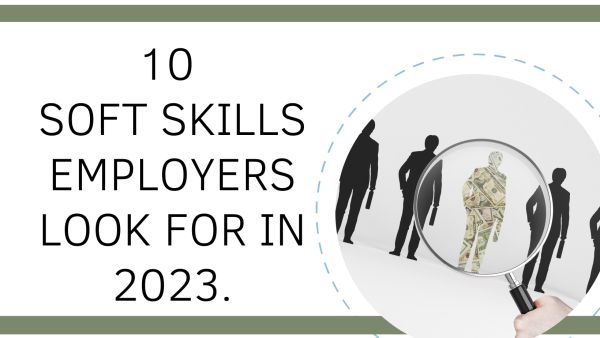Understanding the Importance of Setting Clear Career Goals
Choosing the right career goals is a crucial step towards building a successful and fulfilling professional life. However, the process of selecting career goals can be daunting and overwhelming. In this article, we will provide you with a comprehensive guide on how to choose your career goals effectively. By following these steps and considering important factors, you can pave the way for a rewarding and purpose-driven career.
Self-Assessment and Reflection:
Before setting career goals, it’s essential to engage in self-assessment and reflection to gain a deeper understanding of yourself, your values, interests, skills, and personality traits. This self-awareness will serve as a foundation for identifying career paths that align with your strengths and passions. Take the time to reflect on your past experiences, hobbies, and areas where you excel.
Check out my article: 5 Questions to Help You Find Your Dream Job
Research and Exploration:
Conduct thorough research on various industries, job roles, and career paths that match your interests and skills. Explore different professions, their requirements, and potential growth opportunities. Use online resources such as career websites, industry reports, and professional networking platforms to gather information. Additionally, consider informational interviews or job shadowing to gain firsthand insights into specific careers.
Try my Article: Avoid These 10 Common Mistakes When Choosing a Career
9 Things I Wish I Knew When I Started My Career
Future In-Demand “Non-TECK” Career Paths for School
10 In-Demand Careers for future School Leavers
Set SMART Goals:
Once you have gathered enough information, it’s time to set your career goals. Remember to make them SMART (Specific, Measurable, Achievable, Relevant, Time-bound). For example, rather than saying “I want a successful career,” specify your goal, such as “I want to become a senior software engineer within five years in a renowned tech company.”
Seek Mentorship and Guidance:
Mentorship and guidance from professionals in your desired field can be invaluable. Connect with mentors who have experience in your target industry or role. They can provide insights, advice, and support throughout your career journey. Join professional organizations, attend networking events, or utilize online mentorship platforms to find mentors who can guide you towards achieving your career goals.
Continuous Learning and Skill Development:
To succeed in your chosen career, commit to continuous learning and skill development. Identify the essential skills and knowledge required in your field and create a plan to acquire them. Consider enrolling in relevant courses, attending workshops or seminars, and seeking opportunities to gain practical experience. Stay updated with industry trends and technological advancements to remain competitive.
Have a look here you it may help: Volunteering for Success
Adaptability and Flexibility:
As you progress in your career, be open to adapting and revising your goals. The job market is dynamic, and new opportunities may arise that align better with your evolving interests and aspirations. Embrace flexibility and be willing to adjust your career goals as needed. Regularly evaluate your progress, reassess your goals, and make necessary modifications to stay on track.
Conclusion:
Choosing career goals is a significant step towards building a successful and fulfilling professional life. By engaging in self-assessment, conducting thorough research, setting SMART goals, seeking mentorship, continuous learning, and remaining adaptable, you can navigate your career path with confidence and purpose. Remember, your career journey is unique, and it’s essential to choose goals that align with your passions, values, and aspirations.
As Steve Jobs, co-founder of Apple Inc., famously said, “Your work is going to fill a large part of your life, and the only way to be truly satisfied is to do what you believe is great work. And the only way to do great work is to love what you do.”
So, embrace the process of choosing your career goals, follow your passion, and strive to make a positive impact in your chosen field. With determination, self-reflection, and continuous growth, you can create a fulfilling and successful career path.
Sources:
Forbes: “5 Steps to Set and Achieve Your Career Goals” – http://www.forbes.com
The Balance Careers: “How to Set SMART Goals” – http://www.thebalancecareers.com
LinkedIn: “How to Choose a Career That’s Right for You” – http://www.linkedin.com
CareerOneStop: “Explore Careers” – http://www.careeronestop.org
Indeed: “Why Continuous Learning and Development is Important for Your Career” – www.indeed.com
#CareerGoals, #CareerAdvice, #CareerSuccess, #CareerPath, #CareerPlanning, #DreamJob, #ProfessionalDevelopment, #GoalSetting, #PassionandPurpose, #PersonalGrowth, #CareerJourney, #SelfAssessment, #Mentorship, #ContinuousLearning, #CareerTips, #JobSearch, #WorkLifeBalance, #CareerInspiration, #CareerMotivation, #CareerGuidance



























